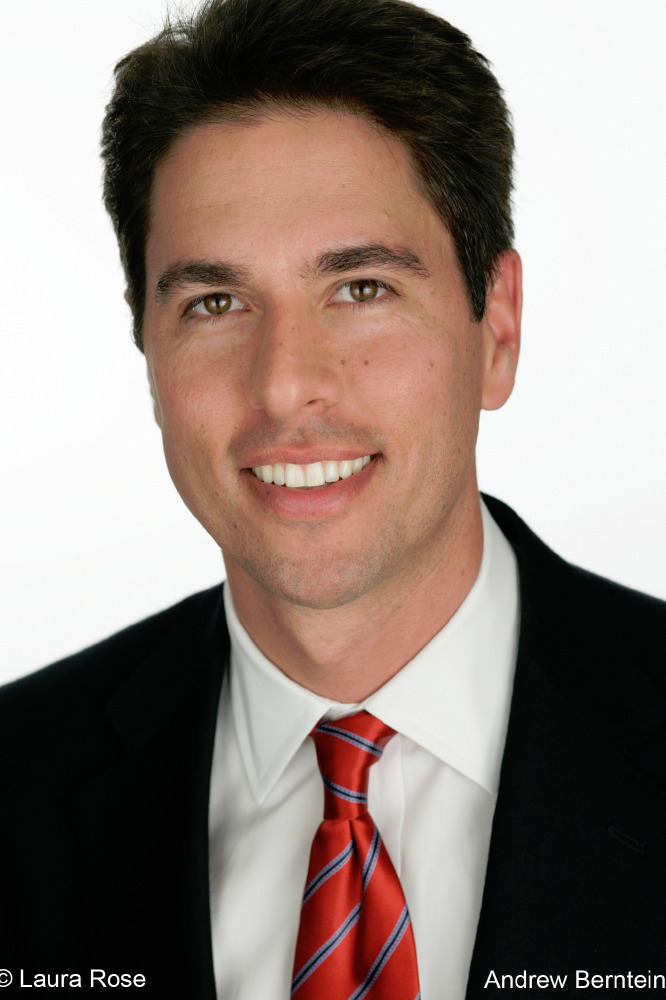
Andrew Bernstein
People today talk about stress constantly as if the way it works is obvious, not realising that our modern concept of stress was invented only 70 years ago by a single man who misinterpreted his own experiments. The End of Stress shows people how such a disastrous mistake was made, how stress really works, and then teaches readers a new technique to take apart challenges much more effectively.
What is stress?
Psychological stress is a combination of physiological and emotional reactions initiated by the way one thinks.
How can work, health, family and finance affect your stress levels?
It's always a function of one's thoughts. There are people with very little money who are happy, and there are very wealthy people who are miserable. If someone wants to live with less stress, they could learn to identify the stressful thoughts they have about work, health, family, money, and other challenges, and come to see these things differently. That's what The End of Stress shows you how to do.
Please tell us about the fight or flight response in terms of stress.
Billions of years ago, organisms evolved the ability to recognise and respond to changing conditions, or threats, with an internal release of hormones. This was favoured by natural selection, and over time, this evolved into what some people call the fight-or-flight response. But the important thing to note here is that it begins with a process of recognition. So stress isn't a physical process with psychological consequences. It's a psychological process with physical consequences. We can educate ourselves to think differently about challenges, and when we do this successfully, the fight or flight response doesn't occur. It would still happen if you're challenged by a tiger, but not a traffic jam or your in-laws.
Why is breathing, relaxing and accepting that life is hard the wrong attitude?
Stress is initiated by a contraction in your mind, which then leads to changes in your thoughts, feelings, and behaviours. You can cope with these changes by breathing, relaxing, or exercising (traditional stress management), but the original contraction is still in place. So I want people to recognise the dynamics in play and go further upstream. This way they can stop managing stress and start eliminating it.
Where does stress come from?
Stress comes from a particular kind of thinking. Originally this thinking served a positive purpose — it helped us survive. But today this thinking has far greater negative effects for most of us. The good news is that we can learn a different way to think. This has nothing to do with positive thinking. Instead, it involves seeing challenges from a radically different point of view. Incidentally, physical stimuli such as heat, cold, toxins, etc. have also been called stressors, but I prefer to label this homeostasis, not stress. There is no such thing as a stressor. Nothing has the inherent power to create stress. It has to first be interpreted through the mind.
How can your book help transform people with issues such as relationships, success, weight loss and bereavement?
The End of Stress teaches people how we've come to misunderstand the nature of stress, how it really works, and how to dismantle it more effectively step by step. The book coaches you as you apply this process to some of the most common challenges, so you're not just reading about living with less stress. You're actually taught how to make that a reality.
What are the health effects of being stressed?
The cascade of hormones released internally during stress wouldn’t be harmful if we experienced them for a just a few minutes every now and then. But when these hormones are being released all day, every day, for weeks, months, or years, it leads to a long list of negative health effects, including poorer immune function, greater depression, increased cardiovascular disease, unwanted weight gain, and faster aging. In one study, the cells in high-stress women were the equivalent of ten years older than women considered low-stress.
What is the easiest step to redefine your thoughts?
The heart of this approach is recognising that what you assumed was true is, upon closer examination, not as true as you had believed, whether it's about your relationships, money, your job, your family, or anything else. Being this honest isn't easy for most people — we think that we're right and the world needs to change, not our thinking — but it's made easier by having a clear explanation of how and why this works and then having a simple process to guide you.
Please can you tell us about your professional background and what is next for you?
My educational background is in literature. I was taught to think critically about the literary canon. For personal reasons, I somewhat accidentally ended up applying my critical toolkit to self-help processes instead, and found that most of these processes (especially the popular American ones) were filled with jargon, stigma, and unnecessary "touchy-feeliness." So I created a new tool that was stripped of all this to make transformation more practical. I now teach this mostly to sceptical business leaders in the U.S. who want to improve performance by developing greater resilience on their teams. The next step for me is putting my training content online as part of something called the Resilience Academy which I hope will help many more people learn to live with less stress.

